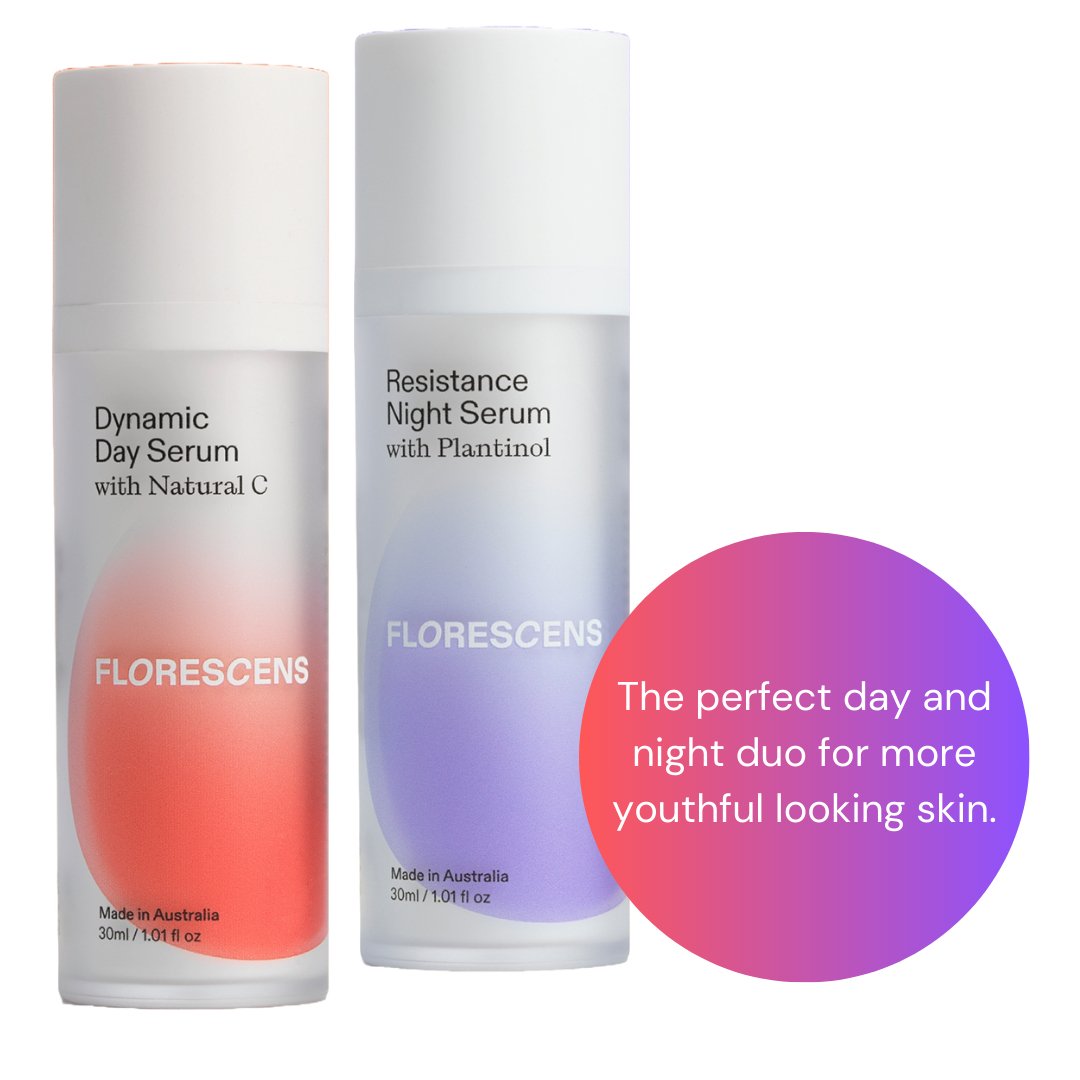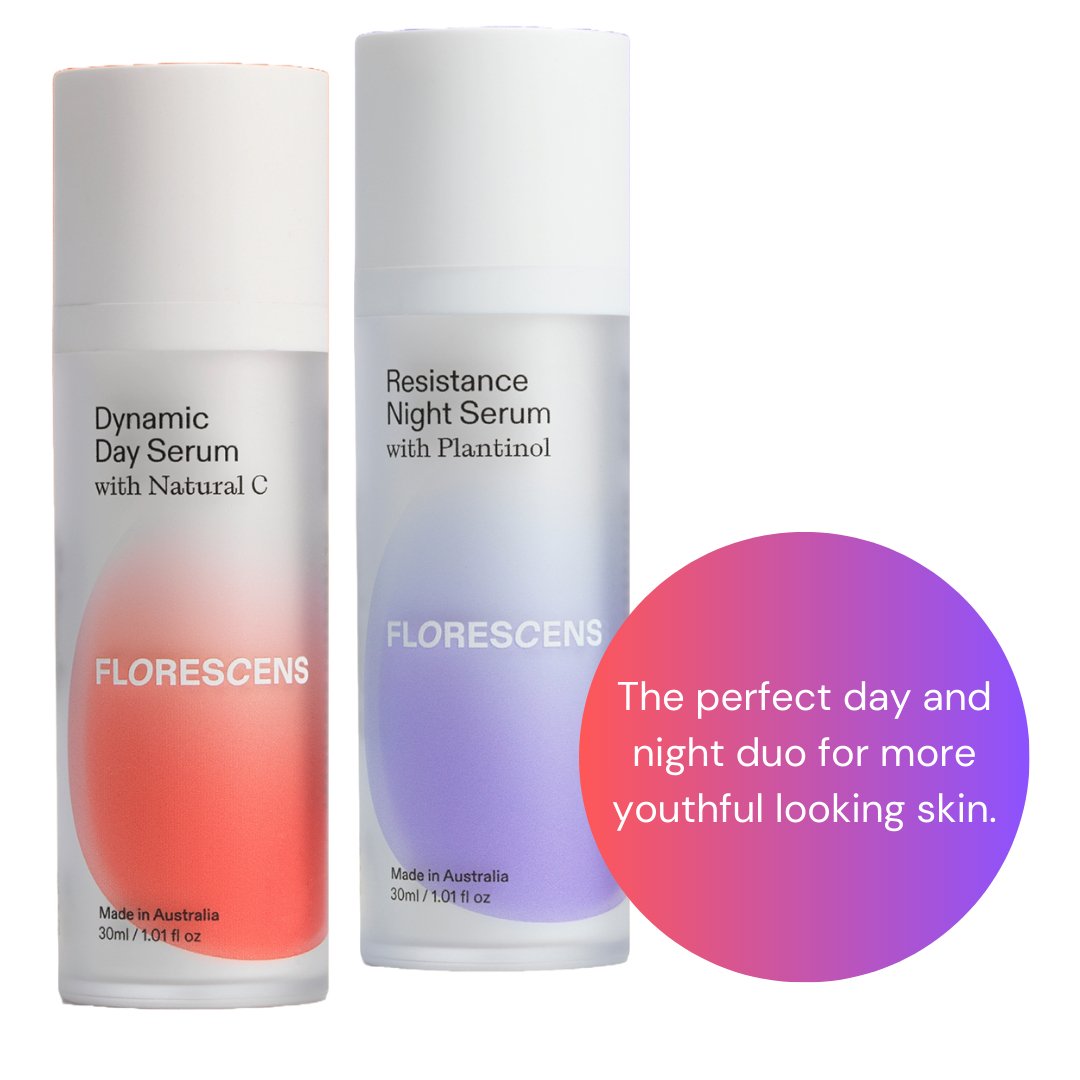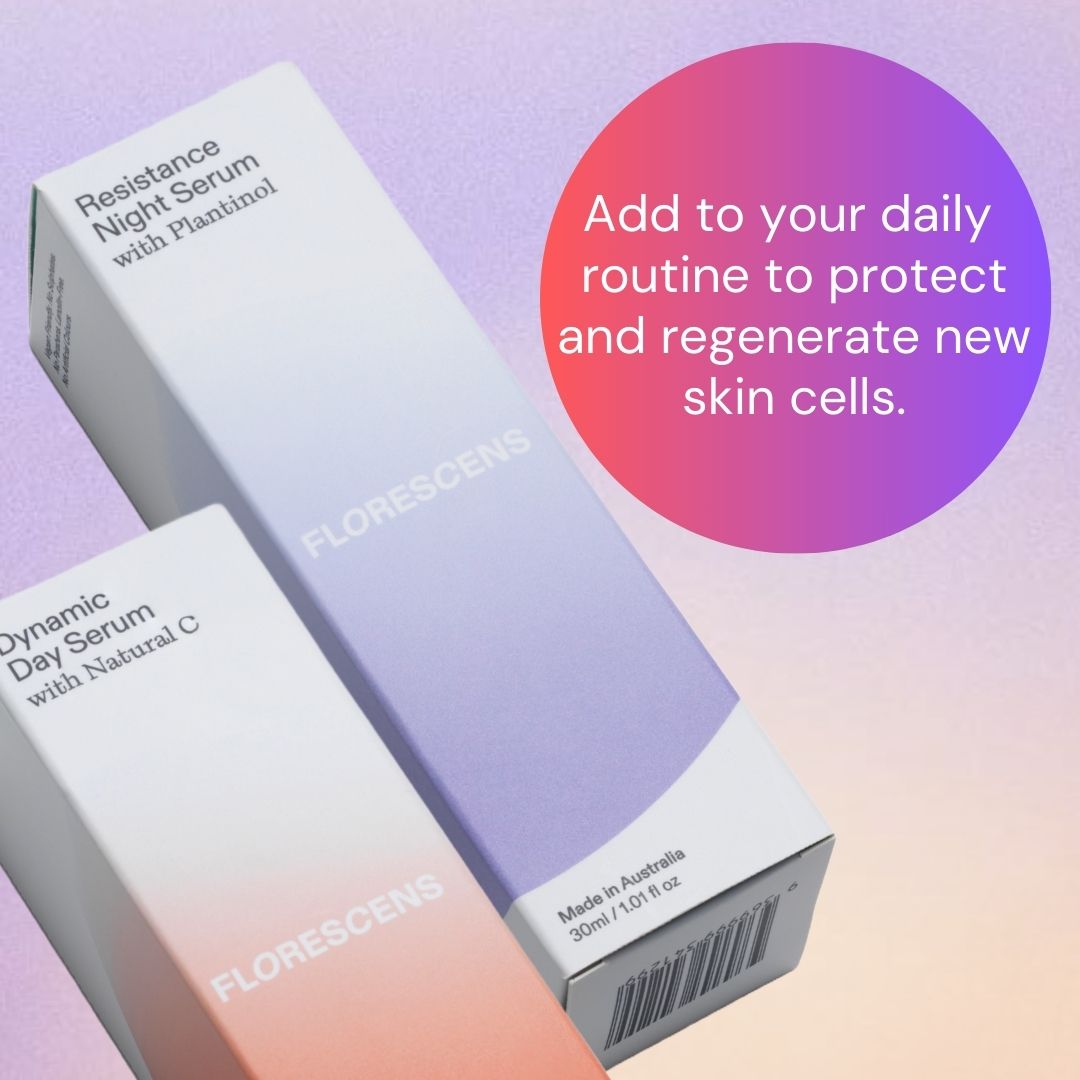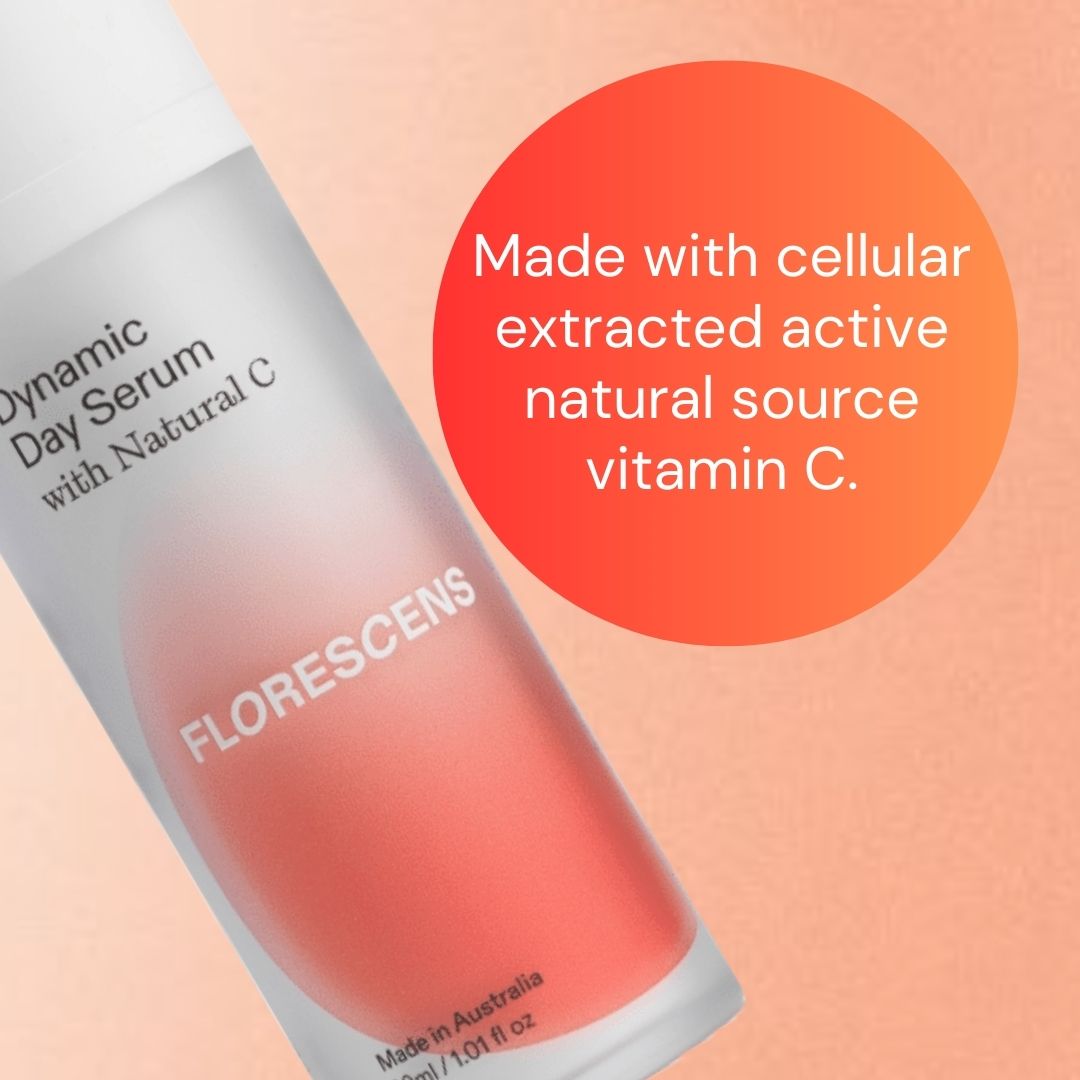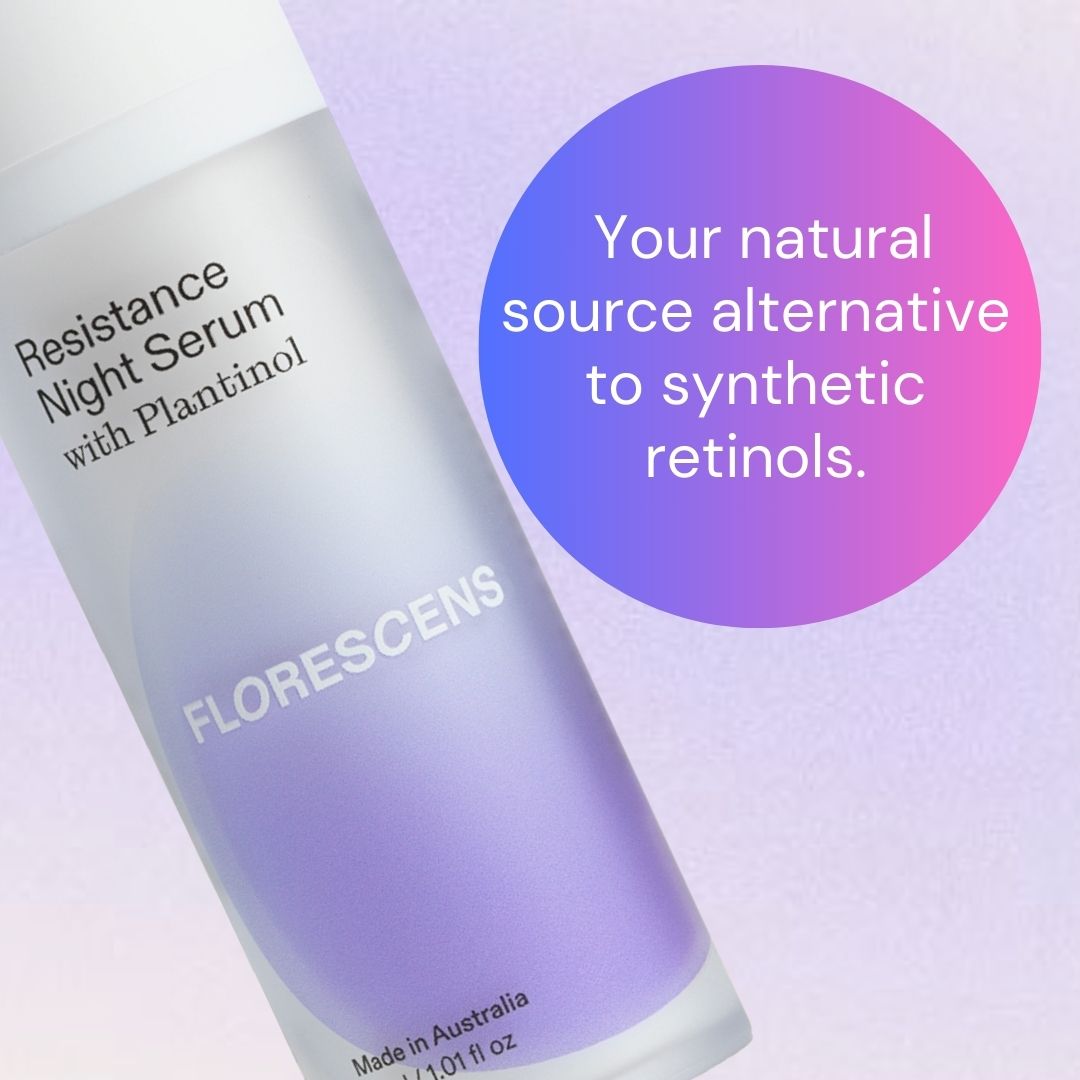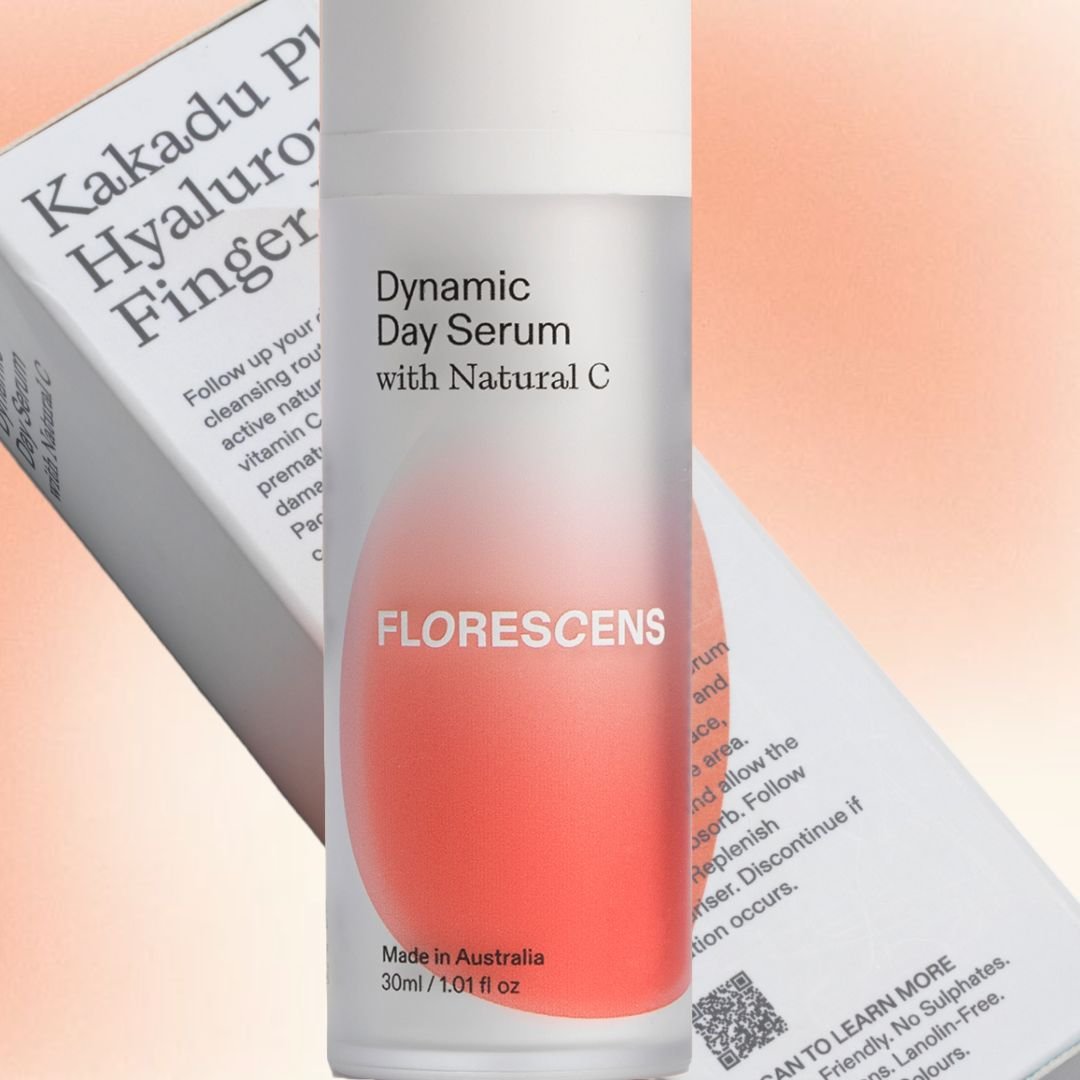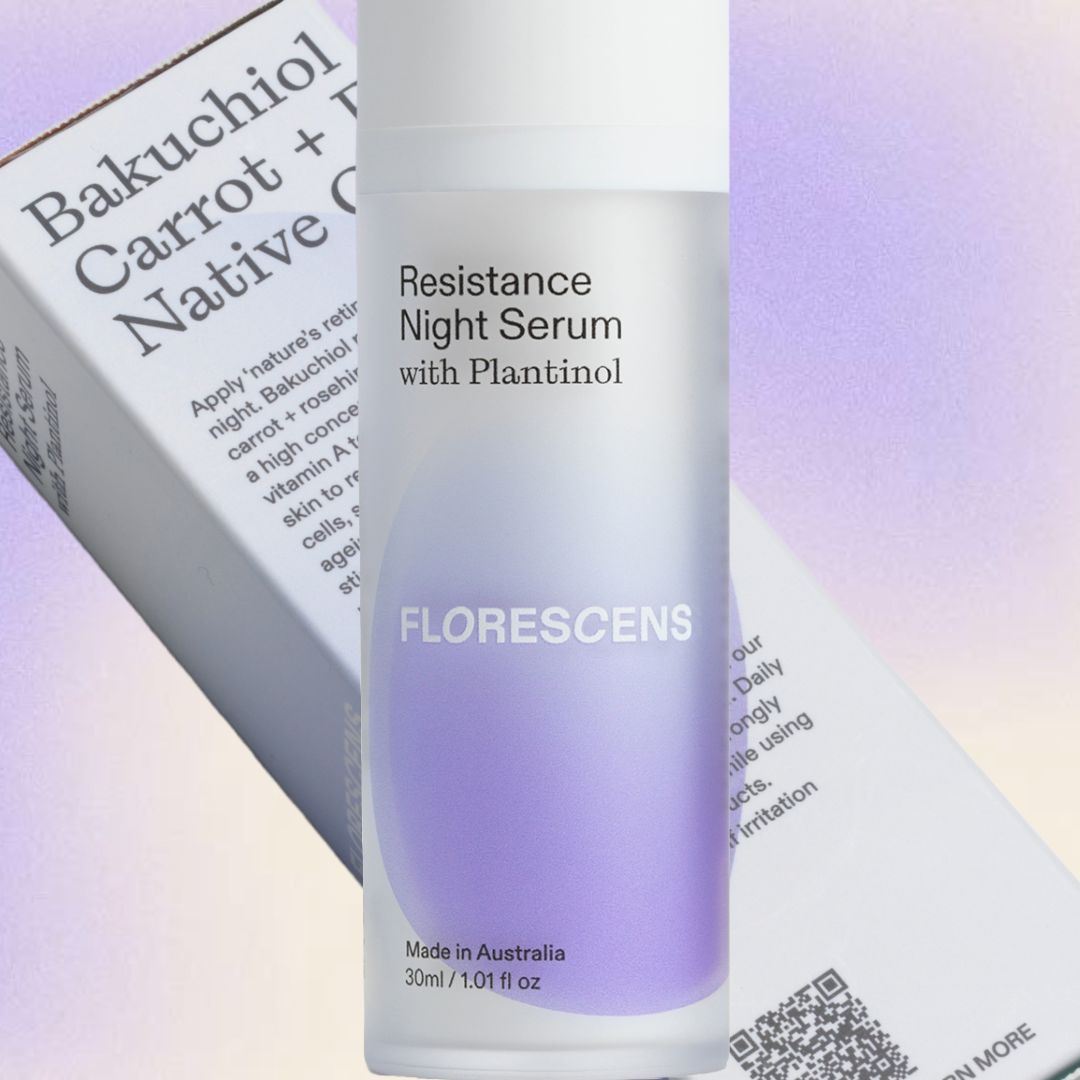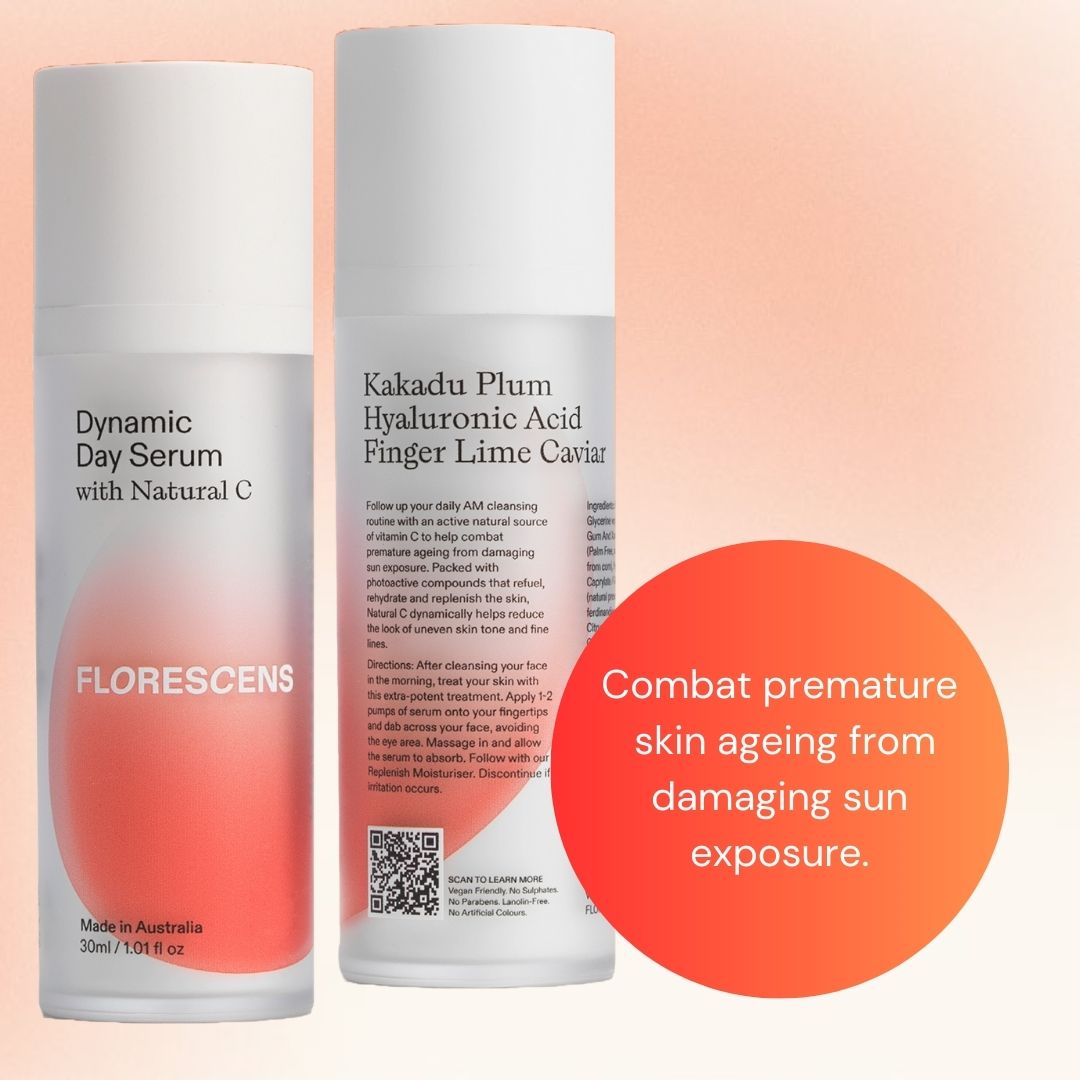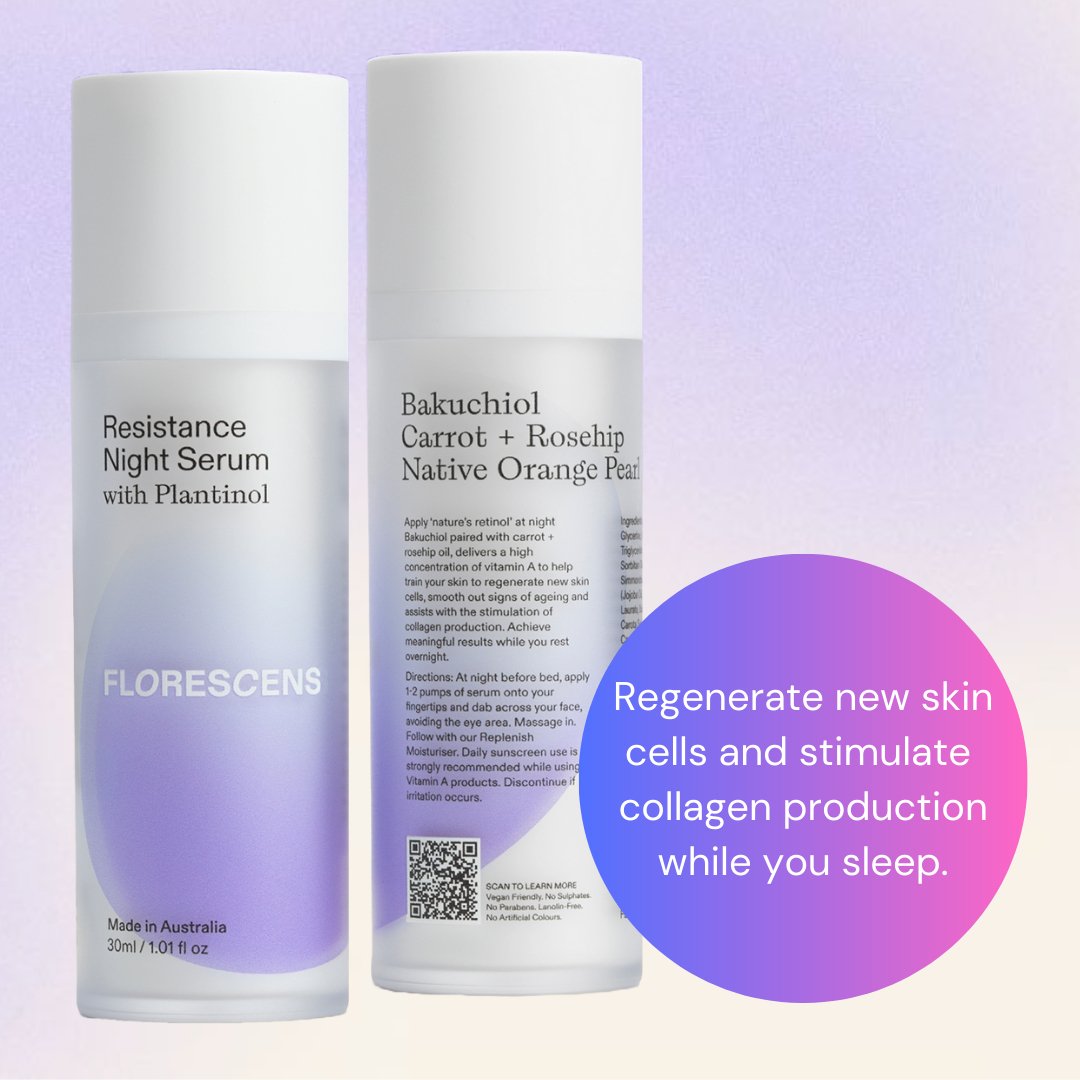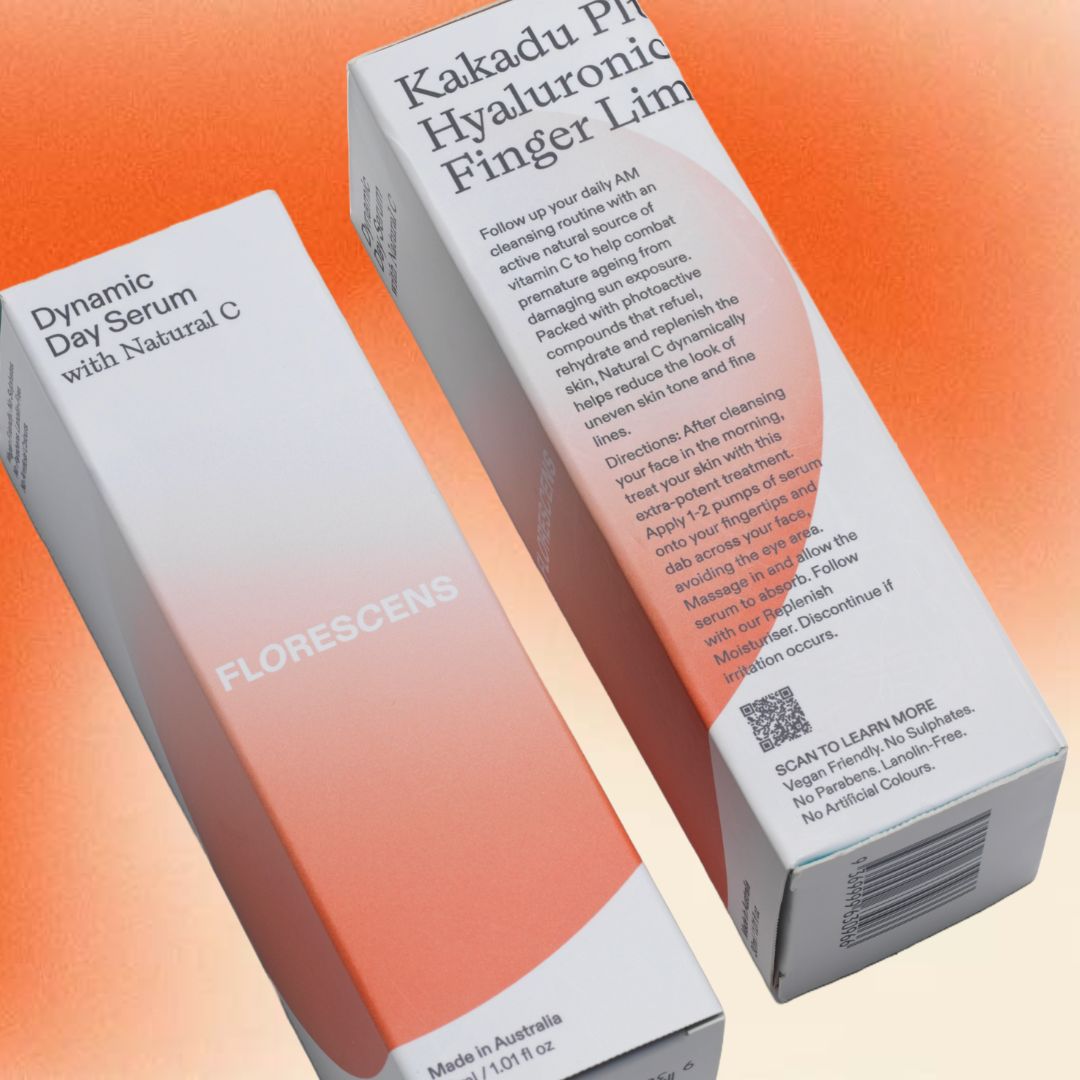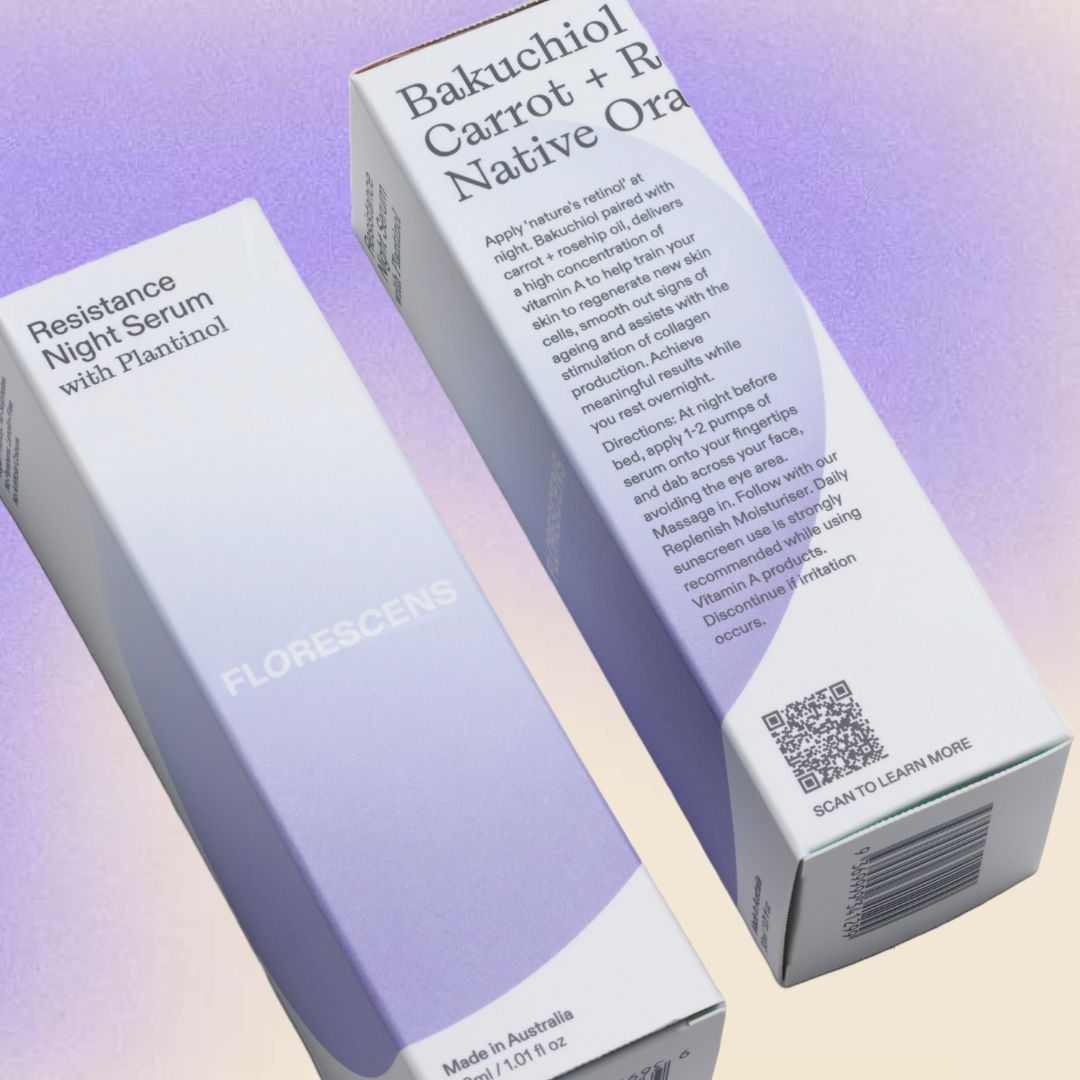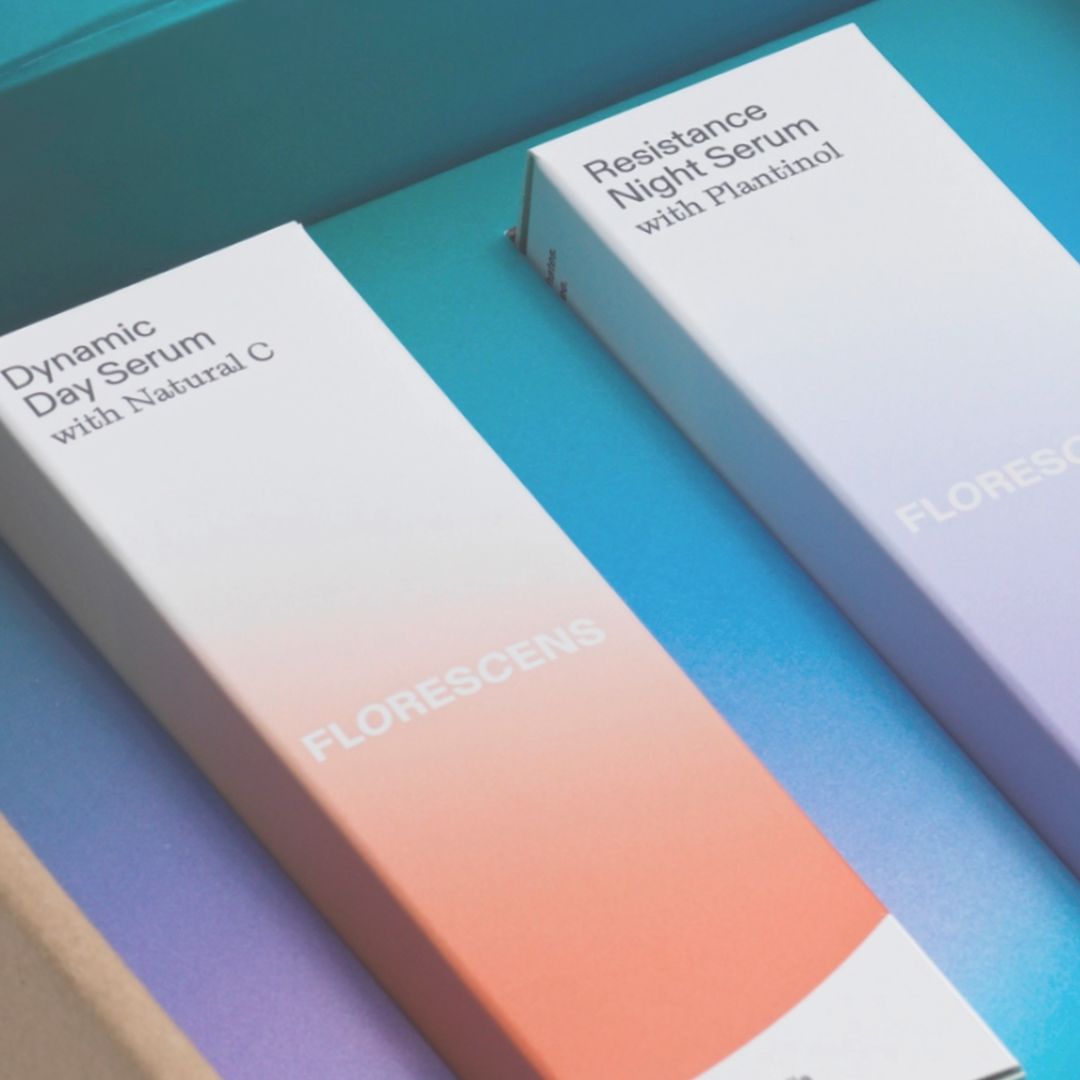
Get the facts about vitamin C used in skincare.
At FLORESCENS SKINCARE our quest for natural source and effective ingredients has led to the discovery of plant derived cellular extracted natural vitamin C. This powerhouse ingredient offers many benefits to the skin, which makes it a must-have in your skincare routine.
What is Cellular Extracted Plant Derived Natural Vitamin C?
Cellular extracted natural vitamin C is an innovative ingredient that originates from superior quality sources, notably Australian native fruits. The extraction method used is specifically designed to maintain the integrity of the plant's profile. This includes preserving the high content of natural vitamin C within the plant. This form of vitamin C, being naturally derived, is highly potent yet considerably more stable and less likely to provoke irritation compared to synthetic alternatives. These qualities make cellular extracted natural vitamin C a sought-after ingredient in skincare products, as it provides a plethora of benefits to the skin while minimizing potential irritations.
Cellular Extracted Plant Derived Natural Vitamin C Versus Synthetic Vitamin C
The use of vitamin C in skincare is not a new concept, however, the source of this essential nutrient can significantly impact its effectiveness. Synthetic vitamin C, often identified as ascorbic acid on product labels, has been a common choice in skincare formulations.
One primary concern with synthetic vitamin C is that it has a lower bioavailability, which means it isn't as easily absorbed by the skin. This can reduce its overall effectiveness in delivering the desired benefits. Moreover, ascorbic acid is known for potentially causing skin irritation, particularly among individuals with sensitive skin, which may deter its use.
Cellular extracted natural vitamin C, derived from high-quality sources like Australian native fruits, offers a more skin-friendly alternative. It boasts a higher bioavailability, ensuring the skin can easily absorb and utilize this nutrient. More importantly, its extraction process is designed to preserve the nutrient-rich profile of the plant source, providing a highly potent form of vitamin C that's less likely to provoke skin irritation.
Additionally, the stability of cellular extracted natural vitamin C gives it an edge over its synthetic counterpart. Ascorbic acid is prone to rapid oxidation, which can diminish its effectiveness over time. On the other hand, the natural variant remains stable for longer, maintaining its potency and ensuring the skin receives its full benefits.
What is ascorbic acid?
Ascorbic acid or L-ascorbic acid is synthetically manufactured vitamin C. Other forms include calcium ascorbate, magnesium ascorbate, magnesium ascorbyl phosphate, sodium ascorbate, and sodium ascorbyl phosphate.
They all appear in cosmetics and represent a synthetically manufactured form of vitamin C. The chemical structure of ascorbic acid is identical to natural vitamin C. There is just one difference, naturally occurring vitamin C from fruits and vegetables is accompanied by other micronutrients and phytochemicals that are missing in the synthetic form. In contrast, synthetic ascorbic acid is frequently derived from d-sorbitol, often sourced from GMO corn.
To summarize, cellular extracted natural source vitamin C offers a more potent, stable, and skin-friendly option. Its superior bioavailability ensures optimal absorption, while its natural origin minimizes the risk of skin irritation, making it a more desirable choice in skincare formulations.
Benefits of Plant Derived Natural Source Vitamin C for Skin
The unique properties of natural source vitamin C bring forth an impressive range of advantages for skin health. Its ability to enhance collagen synthesis is paramount for a youthful complexion. Collagen is an essential protein responsible for keeping the skin firm and elastic. Hence, the topical application of natural vitamin C can help to slow down the signs of aging, including fine lines and wrinkles, keeping your skin looking plump and youthful.
Natural source vitamin C is found in citrus fruits, berries and other fruits grown on trees or plants. Containing powerful phytonutrients, natural source vitamin C is one of the most potent ingredients you can put on your skin.
Moreover, cellular extracted natural vitamin C may help accelerate the process of skin regeneration, assisting the skin to efficiently repair itself after damage or injury. It may also aid in diminishing the visibility of acne scars and other skin blemishes, improving your skin's overall texture and appearance.
In addition to its anti-aging and healing benefits, natural vitamin C is a potent antioxidant. Antioxidants are essential for skin health as they combat harmful free radicals that can cause oxidative damage. By neutralizing these harmful molecules, natural vitamin C helps prevent premature aging and helps combat environmental aggressors.
Natural Source Vitamin C as an Antioxidant
The antioxidant prowess of natural source vitamin C is indisputably remarkable. With an unparalleled ability to battle free radicals, it offers a robust shield against oxidative stress, a primary contributor to premature aging. These harmful molecules can wreak havoc on the skin, but the antioxidant action of vitamin C counters their effects, helping to maintain a youthful and vibrant complexion.
An interesting attribute of antioxidants like natural source vitamin C is that they boost the skin's natural defense mechanism. By bolstering this built-in protective system, the skin becomes more resilient and capable of resisting external stressors.
Despite its powerful protective functions, it's important to note that natural source vitamin C doesn't act alone. It's a part of a network of antioxidants in the body and works synergistically with other nutrients to optimize its protective functions. For instance, it's known to regenerate vitamin E, another antioxidant, reinforcing the overall antioxidant defense system.
In essence, the antioxidant capability of natural source vitamin C helps to foster a healthier skin environment, promotes longevity, and assists other antioxidants in their roles. Its multi-faceted approach to skin health makes it a truly valuable addition to any skincare routine.
Natural Source Vitamin C for Skin Brightening
Brightening your skin complexion with natural source vitamin C has become a popular skincare strategy. Its mechanism centers around the suppression of melanin synthesis, the pigment that gives our skin its color. Excessive melanin can lead to hyperpigmentation and uneven skin tone. By intervening in this process, natural source vitamin C helps to promote a more uniform complexion and decrease the appearance of discoloration. The result is skin that radiates health and luminosity. Additionally, natural vitamin C aids in enhancing your skin's natural luminosity, imparting a rejuvenated and revitalized appearance. When regularly incorporated in your skincare regimen, natural vitamin C can offer a solution for dull, uneven skin, illuminating it from within for a naturally vibrant glow. However, bear in mind, the journey to brighter skin is a marathon, not a sprint. Patience and consistency are vital to see visible results from your natural source vitamin C products.
How to Incorporate Natural Source Vitamin C into Your Skincare Routine
Adding natural source vitamin C to your daily skincare regimen is not complicated. Dynamic Day Serum by FLORESCENS prominently features plant based cellular extracted natural vitamin C in the ingredient list.
Apply your natural source vitamin C product in the morning after cleansing.
Despite its many benefits, remember that the effectiveness of natural source vitamin C doesn't come instantly. It is the regular and consistent use of this potent nutrient that will yield the best results for your skin. So, make sure to incorporate it into your daily skincare routine and stick with it.
One more thing to keep in mind is the proper storage of your natural source vitamin C products. As mentioned earlier, cellular extracted natural vitamin C is considerably more stable than its synthetic counterpart, but it's still a good practice to store your vitamin C products in a cool, dry place, away from direct sunlight, to preserve their effectiveness.
Finally, even though natural source vitamin C is less likely to cause irritation compared to synthetic forms, everyone's skin is unique. Therefore, always conduct a patch test before adding any new product into your routine. This will help you to make sure that your skin responds well to the product and avoids any unexpected reactions.

